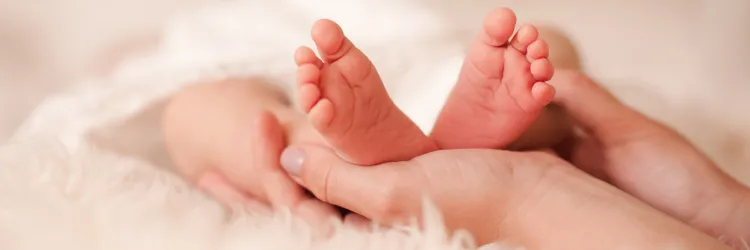Reduce baby waste

Reduce your little one’s environmental footprint
Before the birth of your baby, you may be focused on preparing the nursery, cooking and freezing meals, and choosing some potential baby names. But also planning how you can minimise waste is something you could do to reduce your little one’s environmental footprint and to help you save some money in the long run.
There is a lot of waste that is produced when having a baby – starting with the 3.75 million disposable nappies that are estimated to be used each day in Australia. A single disposable nappy can take up to 150 years to decompose! Most baby wipes too, take a long time to decompose. Then there are all of the other things that babies use for a short period of time, like clothing, toys and books.
Even if you try just one or two ways to minimise your baby’s waste, you could be helping the environment and your hip pocket.
Here are some ideas to consider:
Use Cotton Face Washers
Babies are very messy! They often end up covered in milk, food or dribble. Instead of reaching for the convenience of a disposable wet wipe, you could use a clean cotton face washer soaked in water. Using face washers means you’ll be buying less baby wipes and therefore saving money. Plus, face washers are a chemical-free alternative to most baby wipes.
Use Modern Cloth Nappies
A newborn baby uses around 8-10 disposable nappies each day. Modern Cloth Nappies (MCN) are reusable nappies that combine a water-resistant outside layer with an absorbent inner pad. According to Choice, MCNs that are dry-pailed and mostly line dried are better for the environment than disposable nappies, even when considering the environmental costs of fabric production and washing the nappies. You could consider buying a few MCNs second-hand to see if using them is something you could do. Just check the previous owner has followed the required washing guidelines to ensure the reusable nappies are still absorbent.
Use Reusable Swim Nappies
Disposable swim nappies can be quite expensive. You could consider opting for a reusable swim nappy which does exactly the same job as a disposable swim nappy, that is, it attempts to hold in poo, but cannot contain wee. Just ensure the nappy is well fitting for your baby when you go to the pool or beach.
Borrow Toys and Books
A baby will not care if they play with a toy or book that is brand new or one that is pre-loved. You could consider borrowing toys and / or books from toy libraries, local community centres, street libraries, local libraries or even families, friends or neighbours.
Use Second-hand Baby Clothes
Do you know other people with children around the same age as yours? Receiving and passing on good quality clothing between families is a great way to save money and to reduce these items going to landfill.
Choose Gender Neutral Colours for New Baby Clothes
If you need to buy new baby clothes, skip over the stereotypical blues and pinks, and instead choose greens, yellows, browns and oranges. This could improve the reusability of the clothing for future babies.
Tell Others you Prefer Plastic-Free Toys
Being honest with loved ones about your preference for plastic-free toys may not be the easiest thing to do. Though it’s likely that you’ll feel better afterwards, especially when your home doesn’t become cluttered with unwanted plastic toys. Also, don’t be afraid to ask them for what you need (and even mention that you’re okay with receiving good quality pre-loved items or experiences instead of material items).
Considerations when Giving Gifts to New Parents
When you’re giving a gift to new parents, perhaps think if that gift is something that can be re-used. Also, if you’re not sure what the new parents need for bub, you could consider giving them a gift voucher so they can choose something themselves. If you’re a parent of young children yourself, perhaps you could consider if there is anything you have that you no longer need and that could be useful for the other parents.
